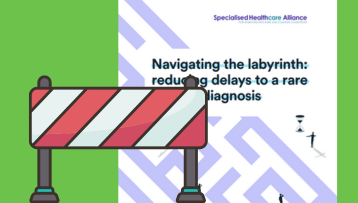New research has shown that metformin – a common medicine used in type 2 diabetes – can improve TSC-related epilepsy and reduce the size of SEGAs (subependymal giant cell astrocytoma non-cancerous tumours). The study could have important implications for the way that TSC is managed and treated.
During the trial, it was found that people aged over 10 years old who were given metformin had reduced SEGA volume and reduced seizure frequency compared to those not taking metformin.
Although the study’s results were positive in improving epilepsy and reducing the size of SEGAs, there were no apparent improvement to the size of AMLs (angiomyolipomas) in the kidneys.
Metformin has been a well-known and commonly prescribed medicine for decades, largely in type 2 diabetes. Following the research, Dr Sam Amin (University Hospital Bristol NHS Foundation Trust) and Prof Finbar O’Callaghan (Great Ormond Street Hospital) have hypothesised that metformin could be re-purposed and may potentially have a beneficial effect in people living with TSC. Metformin also has very few side-effects, and is not expensive to produce when compared to other medicines.
It is expected that further research will now take place, to fully understand the potential for metformin as a possible treatment for TSC-related epilepsy and SEGAs.
The study has been published by The Lancet and can be read here.
Make a one off or regular donation
£10 Can allow us to send a welcome pack to a family who has just received a life-changing TSC diagnosis, ensuring that they do not go through this time alone.
£25 Can help us develop materials that are included in our support services, flagship events or campaigns.
£50 Can provide laboratory equipment for a day’s research into the causes, symptoms, management or treatment of TSC.
To provide help for today and a cure for tomorrow











































































































